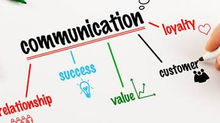ATTRACT MILLENNIALS
- Dec 2, 2014
- 4 min read
By Sharon H. Fitzgerald, Nashville Medical News
“Of the four generations that are in the workforce right now, every generation has characteristics that you want to value and use, but every generation also has liabilities that you have to manage.” That’s according to Richard Yadon, president and CEO of Brentwood-based Health Career Professionals.
A certified employee-retention specialist and certified personnel consultant with years of experience in the business side of healthcare, Yadon founded HCP primarily to assist managed care organizations and insurance companies with key hiring decisions and even provide professionals on contract for temporary projects. The company has carved a niche with Medicaid-based MCOs and is called on frequently to assist those MCOs when they set up operations in new states.
While doing this work, Yadon said he found the healthcare industry unprepared to lure and employ a new generation of workers with a new set of values. Thus, he said he “dug in,” researching the issue and its healthcare implications. As a result, he’s become a sought-after speaker as the industry grapples with employing and retaining a cadre of workers from several generations.
“I realized that companies really don’t have a very professional, very comprehensive or updated way to attract people to their organizations,” Yadon said. “Also, I began to see that my generation, the Baby Boomer Generation, has a very different outlook on the whole issue of work-life balance and how we value a career and what that means in our life than most of the younger people who are coming into the workforce today.”
The members of that newest workforce, called Generation Y or the Millennium Generation, were born between 1980 and 1995, and they value a more healthy balance of career and family. They were preceded by Generation X, born between 1965 and 1979 and with 15 percent fewer people than the Baby Boomer Generation. Boomers were born between 1946 and 1964, while the so-called Veteran Generation was born before 1946. And, yes, there’s Generation Z, born after 1995 but not yet adults.
Yadon said healthcare offers extraordinary opportunities for Millennials, but the question is whether they are interested. “Today is a good time to be a healthcare worker, but it’s not so good to be an employer in the industry,” he said. In the last two years, only healthcare and education added jobs. In fact, home health jobs grew 4.3 percent, while job growth in outpatient settings was 5.3 percent. Even more astounding, Yadon said, is this statistic: More than 600,000 jobs have been added to healthcare just since 2007, and the advertised job vacancies in healthcare outnumber the unemployed looking for jobs in healthcare by almost 3-to-1. What’s more, more than 600,000 registered nurses will retire in the next decade, as will 160,000 physicians in just the next seven or eight years.
Clearly, healthcare enterprises need to lure the Millennials – and fast. But are they doing what it takes? “They must bring employees into the organization differently than they have been in the past,” Yadon explained. “So many companies that we work with talk a good game, but they really have a recruiting methodology that we call ‘post and pray.’ Post a job and pray somebody’s going to answer the ad.”
Yadon said “almost no organization” in American business today has taken the necessary proactive steps to ensure a trained and adequate workforce a decade from now. “Employers are going to discover that it will be harder to find these skilled people who are willing to work. And it’s going to be harder to keep and retain them because the competition for those people is going to be growing at a faster rate and stronger perhaps than it has been in the past,” he said. “Most just don’t have a comprehensive plan.”
Yadon advises clients to bring human resources to the boardroom table and make it a strategic part of the organization. In fact, he goes even further, telling C-level healthcare executives that they must consider HR a profit center rather than a cost center. That pronouncement gets some unusual stares from clients and audiences, he acknowledged. Yet he sticks by the assertion. “Long-term profitability is directly related to the ability to attract and retain key contributors, so HR is equal with business development. Otherwise, they are going to be forever churning people,” he said, adding that the cost to replace a lost employee is generally 150-to-300 percent of that employee’s salary.
It’s important to realize that Millennials “have no loyalty to an organization,” Yadon explained. “They will have loyalty to a person, to a supervisor, to a manager, to a mentor; but if they aren’t getting what they feel they need to get from your organization, it is no big deal to quit and go somewhere else.” Millennials also have an “entitlement mentality,” Yadon continued. “I could spend a whole day talking about how that was created, but they have very big expectations.”
Yadon cited a survey two years ago asking graduating high school students to choose their dream job from a list ranging from waitress to physician. “Of all the dream jobs, the one most often picked job was that of celebrity assistant,” he said, while one-third of respondents said their career goal was to be famous. “We created those expectations for them,” Yadon pointed out.
What does this mean for employers? “There are ways you manage that, by making them famous at work. They have a very heroic spirit so they respond much more to coaching than they do to criticism,” Yadon said. “In fact, they don’t respond to criticism at all. To them, all things reduced to equals is an opinion, and they see you are their equal. It’s a very interesting dynamic. You’re not going to change them, and the worst thing you can do is drive them away.”
Yadon advised tomorrow’s healthcare employers to get comfortable with temporary and contract employees, including Boomers interested in part-time gigs. And he recommended renewed focus and investment on information technology. Millennials “expect to have the best technology to do their job. It won’t be an attractive place if you’re still asking them to switch out floppy disks,” he quipped.












































Comments